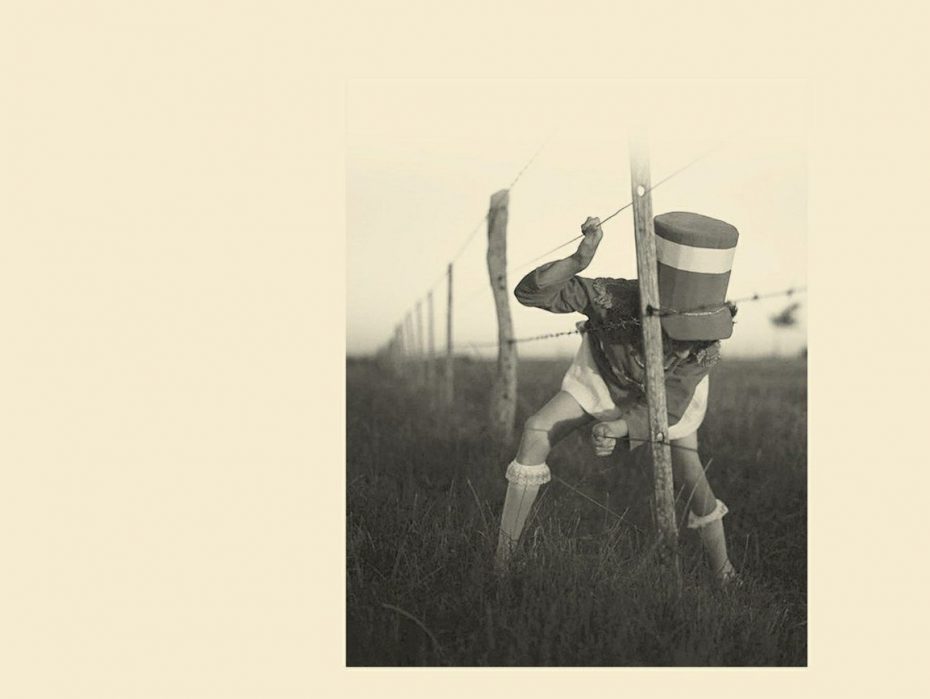
Translated from the Spanish by Juan Carlos Reyes
[dropcap letter=”A”]t every shine of the full moon, we blow off our friends, postpone appointments. You always wait beneath the splendor of the night. I finally understood as much after weeks of watching your window. When you reappeared one Sunday much like the day we first met, before my astonished face, you pointed to the plethoric moon like you were holding a balloon. I assumed rightly that these things could only happen in overcrowded cities like this one, where people’s homes verged into other people’s homes. I carry our record of elapsed time on the calendar hanging from my kitchen door.
Like every Sunday, we see each other after our rounds, our jogging, our trying to read and then abandoning the same book, our many times opening and closing the refrigerator door, until you appear like a mirage in front of my apartment. There have been many times when I’ve thought to myself it would be our last encounter, but in the end, you’re always waiting for me playing out the same scene. There have been times when I’ve wanted to stop altogether, but I can’t seem to imagine something more important to do. I don’t know if it was the curtains left open neglectfully, the encounter after our own respective showers. You, with a towel wrapped to your armpits and a black dress splayed on the bed. Me, covered to the waist, my jogging shoes paraded on the floor. Surely, we both thought about drawing the curtains, but something held us back. We stood there paralyzed, watching each other steadily. That night’s darkness sliced by bedroom lights. A considerable time passed. I didn’t know what to do as you moved your lips into a cryptic appeal.
In a sharp wave, you strip off the towel, take one step forward, get to within an inch of the window. Before anything else, we acknowledge each other. Your body forested in lines, stuck in light and shadow. From a distance, your body is ablaze. It’s uncomfortable feeling that you’re exploring, that you’re trying, same as I am, to memorize shapes and patterns. I study your dimensions, the color of your skin, your figure and depth. We roam over our faces, at first crossing fingers over eyelids, sliding them along noses, up and combing eyebrows, down and undoing our lips. Sketching ovals around them, probing cheekbones, coming full circle at our chin. Drowning our hands in hair, combing from our roots, pausing to swirl and swirl at the nape. We close our eyes, open our lips. Massage our neck, relax our muscles, pinch our ear lobes. Fingertips traveling down our sternum, tracing backward along an imaginary neckline. You start diffusing before my eyes, I try focusing once and then twice and watch your figure bend. A minute-long truce. You bring an index finger to your mouth, draw a halo with your salivated fingertips, trace a humid path around your breasts. Me, one step behind, doing the same. I fantasize from a distance about your stiff nipples. I imagine all our neighbors paralyzed, watching us as they lean forward at their window sills, gazing at us from those black boxes embedded in such long and narrow buildings. My body thickens, I bury my fingers into my ribs until it hurts. With my arms crossed, I trim my waist. Later, you sit on the carpet, serenely exploring the soles of your feet. I keep up with you. Making circles around your ankles, quickly and intensely riding up your legs. And now up on your feet. You turn around. I straighten my spine as you do yours; a scar divides your back. Is it a hernia? You turn just when I’m about to abandon you. I turn around, open-mouthed, and I regain my senses the moment I recognize again the color on the wall. I miss the traffic, the street noise, and wonder if everyone’s died, if we’ve survived some catastrophe.
The glass gets patchy, each window pane left in circles of mist. You command me, with the back of your hand, to soften, and as always, I obey. We stretch our bodies, and I feel like we’re going to flood the windows soon if this doesn’t end. I can’t manage to ask you through the night’s silence when suddenly you let your hand fall quickly from forehead to bellybutton like a grand brushstroke. I just want to curl up and hold myself. But you punish me with your dilated time.
At this point, I start wondering about our neighbors touching themselves in the silence of their own darkness, devising for themselves some appropriate ritual. Denying the following day they’d spied on this scene, all this just a dream between their pillow and the sheets. You bring me back to you when you insinuate avenues through your muscles. You reproach me with a glance, I continue. Your fingers indiscernible, my hands uncovered. I adjust my breathing so you don’t hear it. Your fingers each time more inconspicuous. My hands exposed by mechanical movements. From such a distance, we get closer. Our bodies attuning our wavy cracks, our recessions and peaks. In a spasm, we replay our entire childhoods. Your nameless pupils rescue me from the wish to throw myself into the lower stories. To get up and fall to my knees in some faraway country. Something brings us together in the void, something tries to drag us into oblivion. Someone turns the lights on and then off. Applause. And then the same glowing solitude. Each person to their bedroom, resuming their distances, leaving a circular stain on the carpet. For a moment, I thought I’d spooned your body into mine, felt your shape in mine. More applause, there’s an extended standing ovation. Many times I’ve been to the point of some ridiculous curtsey, but we sustain each other by the same smirk. Your lips approach the glass, and I approach with mine; we give each other a goodbye kiss.
After you leave, I notice the uneven buildings, the neighboring elderly couple watching a television show of raucous colors from their couch, one and another passerby walking along the plaza that separates our buildings, a chimney that trims the clouds, the tidy roof tiles of a house. Between one encounter and the other, I spy your windows always closed and with thick curtains. One night I notice perhaps two people in distinct apartments as two lights shut off almost simultaneously. Your balcony plants look well-kempt, though I’ve never figured out when and by whom they’re watered. One afternoon I thought I saw a boy, his small shadow moved restlessly from one side to the other and I managed to see an explosive forelock. Could it be your son? A nephew? The more I try to glimpse details of the home I can’t tell if you have two nightstands each for a different purpose, a man’s clothes hanging over the back of a chair. I’m intrigued by the small movements throughout the day. Might you live here? Is it an apartment you occupy only on special occasions?
For the next encounter, you smoked, you flicked a lighter that sparked like a makeshift fire. A breath you later exhaled in puffs that submerged you in clouds. The sound of a camera flash, we remained intact, the terrace as it was. Had someone taken a picture of us? You, tilting your head toward the ashtray at the center of the table. Me closing my eyes and imagining a hand over my shoulder searching blindly for me. Suddenly, we looked at the same window, where our lawyer neighbor was hanging his jacket on across the back of his Viennese chair, which he did every afternoon, later collapsing on the white couch. His body tired, his countenance completely shut off. I don’t want to age like him, though I do stay attuned to his evening sorrows, to the effects of those defeats that plunge him into the cushions. These neighbors who exist because of all the precarious construction nearby. At night the open windows used to make you partake in the echo of the clanging argument racing down the hall, of the wall-drilling that ended and then restarted, of the neighbors’ faces host to flaws and pockmarks that don’t belong to them, it was the woman with the wide brim hat who returned her keys and walked away dragging a suitcase, on the first floor her hand on a knee that wasn’t her husband’s, her voice graver than the upstairs schizophrenic who screeches until his sleeping pill kicks in. On the lower building rooftops, there are invalid animals, capable of surviving for survival’s sake, that dig up trash and hunt for insects. I keep looking at the city’s other extreme, statues and plazas, apartments with slate rooftops, stork nests, bat nests, (should I go on?), a terrace where we can distinguish between an aproned maid and a woman sitting with dark sunglasses holding a tray. I turn on the headboard lamp and the whole suite lights up, not unlike the kitchen that exists only in fragments before the whole thing comes into view.
There are moments I find myself skeptical about your return. And then I hear the dog’s footsteps two floors up, the keys whispering just outside, the grazing of a rope that drives diagonally like the wind, a swinging rusted wire. I recognize the door latch sound of the woman next door, the maladjusted table board. I go downstairs, I guess whose steps might be on the landing, it’s the prim, educated man, I ask him for the time despite the clock on the wall.
“Twenty-five to nine.”
You should already be at the window. You point to your watch, insist twenty minutes to nine like a reprimand. Have you said something? Are you alone? Only the soft rumbling of the traffic outside. “Do you have a new scar on your lower back? What happened between your back and glutes? A serious illness or childhood accident? Something minor? Recently or far back?” I’m puzzled by the question I baited before I could bite my tongue. Truth is we’ve never dared ask each other anything from the balcony. I don’t know your name or age, what you do or how you smell. I know that we pay the same in building fees, that our telephone numbers start with the same trio of digits, I also know that you belong to me, that you exist once a month, and that it’s that or nothing. So if one day I wait for you outside or I call you, even though I don’t know the number (I’d only be able to dial those first three digits and stand there with a dead tone), or I write you something without knowing what name to address the envelope to, you’re liable to abandon this scene and retreat from the stage forever. I knew it that time, when I sensed it had been something special, unique; and so I started making a desperate show and you drew the curtains so briskly that it pains me even to remember it. I was stuck there, on my feet, alone and naked, with my body trembling and my hands rehearsing some useless gesture, imagining the neighbors were laughing hysterically, that I was some surreal impression of a person in the heart of the city. Which is why I now control myself, I settle for your body like a movie screen, for that two-dimensional fantasy. I wait for that Sunday, to feel myself too far inside each and every meter that separates us, to hear the neighbors applaud, get intoxicated with dizziness. To go to bed alone with that absent French kiss, empty of flavor, counting the stories to your apartment, crossing out the days on the calendar.
You are, I am. The concierge’s son, who sometimes offer me the ball when I come in, plays soccer against the wall. That night we went over our scene like so many before it, when suddenly we noticed a body falling, a neighbor had leapt into the void, a thick seizure on the horizon, a body falling, falling, piercing the apartments below us,
The eleventh,
Tenth,
Ninth,
Eighth,
Third,
Second.
The first floor was the crash of his body against the ground, shouts, we hesitated, your mouth flapped open, you were slow to comprehend that to your right, to your left, everybody was screaming at the same pitch to where you couldn’t discern your scream from everybody else’s. You went to the far end of the bedroom, we had to dress quickly and rush downstairs, I needed your arms in that terrible moment, I focused, I didn’t want to lose my head, or waver, or disaffect myself, you have to be there, I looked for you in the mob that had crowded the entrance, neighbors in pajamas, walking awkwardly in their slippers, others with their flies poorly zipped, the concierge laying a wool blanket on the body, the ambulance siren, the paramedics making their way through, neighbors forming a second circle, me peering across the women. You have to be here, I should recognize you, if you really are mine, I look for your auburn hair, your small frame, more neighbors approached, the fireman demanding a way through, the human flock disperses, the neighbors conjecture psychological trouble, heartbreaks, aberrant indications of something as he took out the trash, as he took the elevator, because who after all is not a stranger to anonymity. I smiled at some girl who looked at me spitefully probably thinking I was trying to seduce her, later I made a gesture to a woman that seemed too old to be you and she ignored me, I can’t scream a name, stop everything and shout for the neighbor who meets me under the full moon. All of us witnesses to a nosedive.
When they removed the body and everybody returned to their apartments, I also went upstairs. Your window was in total darkness, and might you have been running to the exit, leaving me precisely when I needed you to tend to my sheets, change the pillow, change my position, me, with my mouth pressed to my knees curled up in a home I imagined, because ultimately only the lawyer neighbor exists, the police, the firemen, perhaps one kiss under a street light, a lantern looking for you, me at the window observing nada, the pain tearing the neighbors from the disquiet of being anonymous to each other, faces that resign themselves, eyebrows that bend helplessly, one to the right and the other obliquely, registers of a shared tragedy.
A body nosedives,
not from the sixth floor,
not from the third,
not from the second,
not from the eleventh,
but from the twelfth.
Not an accident, or perhaps a deliberate one despite its how incompatible that is, flying into the everything and nothing, tenants having supper without anybody sounding the alarm for what was about to come, not even a goodbye, a curiosity, a surprise, the murmurs stopped. There are living rooms pleading, lights on low, jumps predisposed to everything but happiness, with splattered blood, a decision that tips over like a glass cup, a purring anxiety before the final hour, before the mid-hour. A body now like a constellation on the asphalt that has nothing organic anymore. A human installation at the center of meteors and planets that grazed its fall.
The calendar that’s knotted to the clock has arrived: twenty minutes to nine. You are, I am. My body doesn’t react, I don’t get excited anymore, I feel inert inside and out. Something gives me the feeling that this reenactment is going to be our last, I stop the blinds at the point of shutting when my desolate mouth announces there will be no more games. Not exactly a restlessness, something else, a cold chest, hot and frozen, my legs icy, my hands frosted. My eyes temperate, empty, empty eyes inevitably go stern or, if not stern because they’re empty, no matter how fixed, go huge. I refuse to wake up again from viscous dreams without so much as being able to pronounce a name, some random arrangement of letters, some disarray of sound. It doesn’t matter anymore whether the stage is set or the theater is absent of spectators, whether neighbors offer a standing ovation at their armchairs or brusquely shut their curtains. I simply retire to bed or I give up, whatever you want, my body doesn’t respond, it just can’t anymore. I draw the curtains shut and sit at my bed, I hold my head in my hands for a while, later I shrink into myself. I pass several long minutes keeled over, when the bell interrupts me, my apartment doorbell. I open the door not to leave but to let you in,
Two years,
Four months,
Seven days.
“I’m here,” you say.
No response.
We’re just two anonymous people at an impasse in a doorway.
“The Disquiet of Being Anonymous” is translated into English by Juan Carlos Reyes. Read the original Spanish story in Andrea Jeftanovic’s Don’t Accept Candy from Strangers.

Andrea Jeftanovic is the author of the novels Escenario de guerra (Scenery of War) (by Abundant, Baladi and Flamethrower 2000, 2010, 2012), which won the National Council for Culture and the Arts Award for the best book published that year, and Geografía de la lengua (Geography of Language) (2007). She has also published a volume of stories. No aceptes caramelos de extraños (Don’t take candy from strangers) (Uqbar editors 2011, Seix Barral 2012; Art Critics Circle of Chile Award to the best literary work of 2011). Her stories have been part of several national and international anthologies.

Juan Carlos Reyes was born in Guayaquil, Ecuador. He's the product of a math degree, though only words hold his attention anymore. His first book, A Summer's Lynching, won the Quarterly West 2016 novella prize, and his chapbook, Elements of a Bystander, won the 2017 Arcadia Press Chapbook Prize. His stories, poems and essays have appeared in Ascentos Review, KGB Lit, and Hawai’i Review, among others. He is currently a Jack Straw Fellow and serves as an assistant professor of creative writing at Seattle University.







